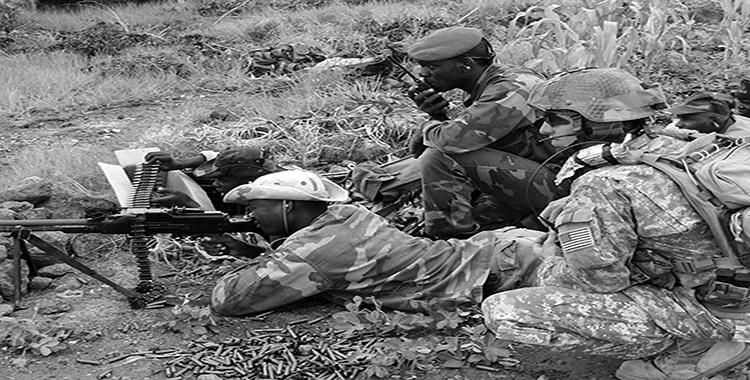Suffolk University is not heard of as being subject to direct violence, but underlying currents of strife abroad always hit close to home with such a prominent international student body. Suffolk University is the home to students from over 100 countries and the international population makes up around 15 percent of the overall students enrolled at Suffolk. With such a dominant representation, you can’t go through a day without hearing five to six languages aside from your own all around you.
That said, Suffolk personally witnesses global atrocities from natural disasters such as the hurricane in Haiti last fall, which has still left people homeless, to terrorist attacks and revolutions across the globe. In recent headlines, Mali has been subject to great discontent, which has just called for French military intervention. For France, the risks range from secure oil reserves to future political stability.
More importantly, Malian lives are at risk every day and have been for over a year since the revolution in Libya culminated in the death of their president, Muammar Gaddafi. Islamic extremists have been wreaking havoc in Northern Mali. This uprising was originally incited by Tuareg rebels seeking autonomy, of whom a majority originate in Mali and Niger. This rebel uprising subsequently attracted Islamic extremists who have taken over the Tuareg cause into their own hands without any real relation to this ethnic majority of northern Mali.
The ceaseless bombardment of innocent towns and villages has left families distraught and a government rendered useless in the face of such Islamic extremist pressure. The Islamic fundamentalists have ruled Northern Mali for months and their campaign is gradually encroaching on the South, touching the lives of that many more families.
This past week, Suffolk student Dauda Wague who is originally from Sokolo, a town near the north-south border of Mali heard devastating news. The town he grew up in has been officially taken under control by the Islamic extremists. Wague stated, “I haven’t talked to my family in a week, and my aunt’s two children have been shot,” mainly because the crossfire and Wague expressed that he has not found out whether they survived or not. When the Islamists take over a town, “they cut off telephone networks,” Wague stated, “because they know the populations hate them and will expose their location, their numbers, and the weapons they carry.”
The Islamic extremists, Wague suggests, “are not in it for religion and they just want power.” Wague also claims that the Malians all know these Islamic extremists from before, namely as “criminals and drug dealers who have been jailed.” Since the take-over of the northern region in Mali, a number of these prisoners have been released and are now leading the rebellion with the soldiers from Libya, Wague claimed.
This power structure ensuing from the north has proven powerful and relentless. The Islamic radicals are more dedicated than the Malian army – “they are so mentally strong, they can’t lose: if they die they go to a
better place,” according to their religious affiliation, and if they win they have successfully eradicated the unfaithful. Wague expressed that he has “never read in the Koran that killing people will send me to a better place,” showing the disrupted logic these Islamic radicals are abiding by.
Sharia law, which the Islamic extremists have dubbed their excuse for infiltrating the homes of the innocent, has been exploited for a cause unworthy. Mali, the first country in West Africa to become Islamic, has subscribed to a strict Muslim belief system, but according to Wague, they have openly coexisted and tolerated Christianity and simple nonbelievers. For this reason, the Islamic radicals justify their disruption and incursions.
With the former Malian prime minister having resigned in December of 2012 and a new one having been sworn in in early January, transition and progressive action by Mali itself has been limited. The military has yet to act itself, but with newfound confidence prompted by France’s engagement, progression towards a Mali eradicated of extremists can at least be hoped for. As Wague claimed, “the [Malian] military is around 6,000 soldiers, especially for the third largest country in Africa,” this hints to great limitations. Their efforts are rendered futile in the face of dispersed warfare and security measures across vast lengths and large deserts.
For Wague, the end of the conflict is unseen. French politicians have deemed France’s support ephemeral and a reliance on the African Union for military assistance is the greatest hope for strength in the future. Wague’s plans for the future have been drastically disrupted, as with the rest of the Malian community that must bear the unwarranted intrusion of Islamic extremists at the cost of daily routine and hope for a normal future. From corruption to unrelenting odds, the Malian people are unfortunately exposed to an ambivalent future that is seemingly insurmountable.
This is not the first time students of the Suffolk community have had family and fellow countrymen in near death situations because of internationally criticized invasions, but we can only hope to expose and support those around us who have family and friends in direct danger. The facts must be acknowledged as Wague deeply expressed, and starting within our community and creating greater awareness is one of the only measures of relief for those in almost imminent danger.














The Suffolk Journal • Jan 24, 2013 at 12:00 pm
[INT’L NEWS] Crisis in Mali hits home at Suffolk (by Ryan Powell) http://t.co/T6VZcoFu
Ryan Powell • Jan 23, 2013 at 11:04 pm
New article on the conflict in Mali http://t.co/pQoCARt7